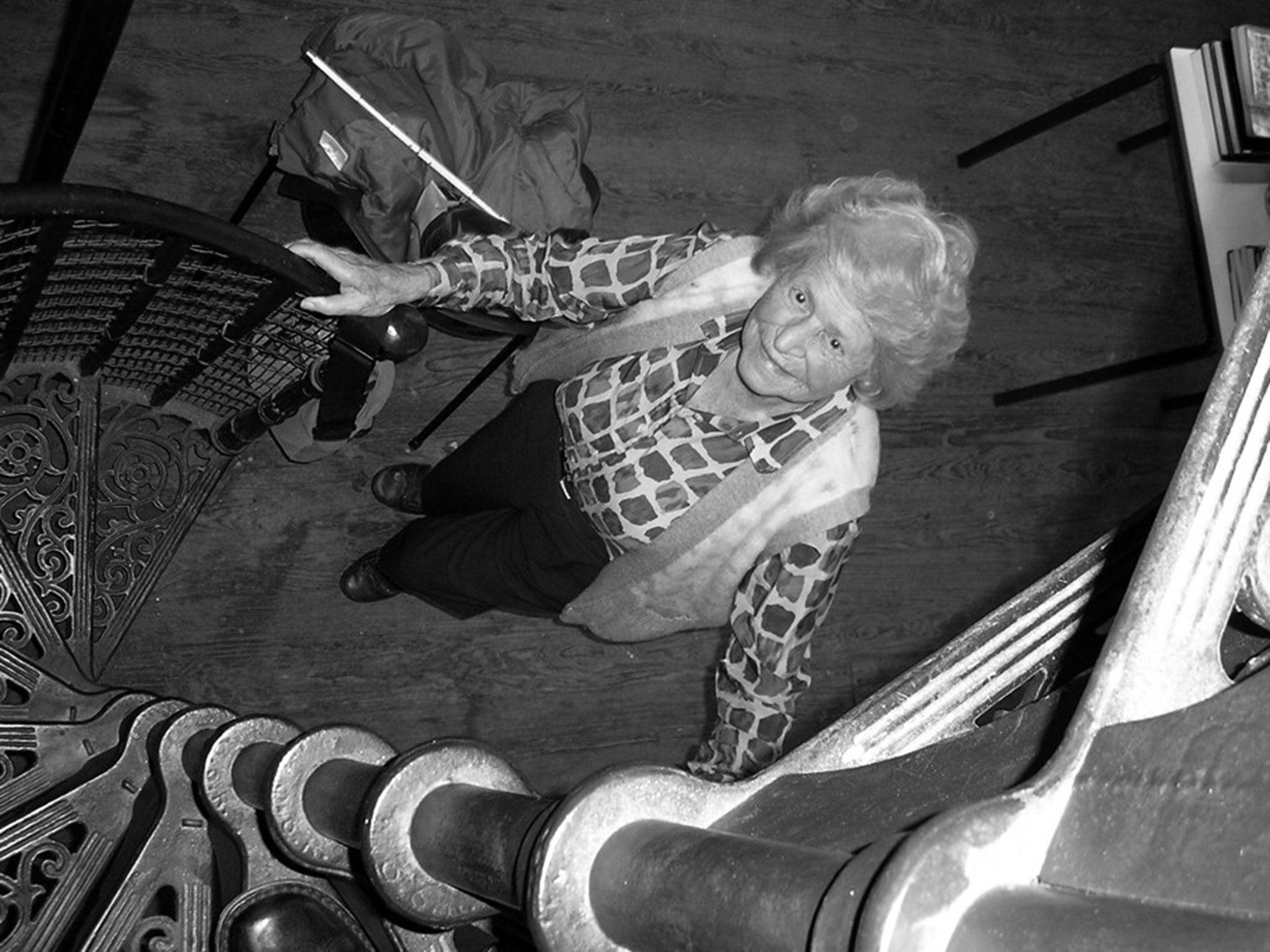Dame Kathleen Ollerenshaw: Acclaimed mathematician who helped create Manchester Polytechnic and advised Margaret Thatcher
Ollerenshaw was one of the most illustrious Mancunians of her generation and never ceased to use her considerable talents to actively promote the education and advancement of women

Throughout an extraordinarily long and active life, Dame Kathleen Ollerenshaw successfully overcame personal adversity and family tragedies to become one of the most illustrious Mancunians of her generation. Emerging as a mathematician of international renown, she proved no less adept as an educationalist. Here, as always, she never ceased to use her considerable talents to actively promote the education and advancement of women.
Born in Manchester, a member of the Timpson shoe dynasty, she was educated locally before becoming a boarder at St Leonard's School, St Andrews. When she was eight a serious sensory-neural infection brought on the deafness that would affect her for the rest of her life. Undaunted, having learnt to lip read, in 1931 she won an open scholarship to study mathematics at Somerville College, Oxford.
While there, her prodigious talents, both academic and sporting, rapidly came to the fore. Winning a Hockey Blue as Captain of the University XI, she went on to represent both Lancashire and the North of England. Also a talented skater and ice hockey player, she was once runner-up in the British Championship English Style Pairs Event. After the war, when she was too old to compete, she became a respected judge.
Having begun her career as an applied mathematician at Manchester's Shirley Institute, undertaking research for the cotton industry, she later returned to Oxford as a wartime mathematics don. Among her students was a young chemist, Margaret Roberts, who became a lifelong friend. Ollerenshaw would later advise the Thatcher Government on education policy. Back in Manchester, while lecturing at the university, her continuing research into critical lattices and magic squares brought increasing acclaim.
No less impressive was the publication in 1952 of a hard-hitting report she had compiled into the parlous state of school buildings. Subsequently co-opted on to the Manchester Education Committee, Ollerenshaw became Conservative councillor for the Rusholme ward in 1956. The first and only woman member of the council for many years, between 1967 and 1971, she served as Chair of the city's Education Committee. After a period leading the Conservative opposition she stepped down in 1981.
Notable among her many achievements was the creation, in 1970, of Manchester Polytechnic. While she was serving as chairman of the Further Education Committee she united under one academic umbrella Manchester College of Art and Design, the College of Commerce and John Dalton College of Technology, to create the largest of the 30 new polytechnics then bursting into life. Leading the organisation in its early years, what is now Manchester Metropolitan University today bears remarkable testimony to her foresight and creative vision.
Her sharp insights also played a pivotal role in the development of the Royal Northern College of Music. During the 1960s the Northern School of Music was threatened by a new road scheme, and Ollerenshaw proposed its amalgamation with the nearby Royal Manchester College of Music to create a major new conservatoire for the city. It opened in 1973 and Ollerenshaw became the first chairman of its Court. Poignantly, its elegant roof garden was designed in memory of daughter, Florence, who died aged only 26 in 1972.
That year she became Senior Research Fellow in the Department of Education at the University of Lancaster. She was a keen amateur astronomer and the university's observatory, opened in 2002 by her great friend, Sir Patrick Moore, now bears her name. Serving as Deputy Pro-Chancellor between 1986 and 1992, she had earlier undertaken a similar role at the University of Salford.
She was also a fine writer, and as well as many significant contributions to specialist periodicals, journals and research papers, her books include The Girls' Schools, Education for Girls, First Citizen and an entertaining 2004 autobiography, To Talk of Many Things. With David Breé she compiled Most Perfect Pandiagonal Squares: Their Construction and Enumeration, while a later collaboration with Sir Hermann Bondi produced Magic Squares of Order Four. Certain aspects of her year as Lord Mayor of Manchester in 1975 were recorded in a delightfully illustrated children's book, The Lord Mayor's Party.
She succeeded the Duke of Edinburgh as President of the Institute of Mathematics and its Applications in 1978, and her orbit embraced everything from the Layfield Commission on the Financing of Local Government, to the Burnham Committee on Teachers' Pay. In 1979, she led the British delegation attending President Jimmy Carter's Conference on Central/Local Government Relations, held in Washington DC. She was the dedicatee of the ninth of Sir Peter Maxwell Davies's impressive set of Naxos Quartets, in which the composer uses magic numbers to evoke childhood memories of the Manchester blitz.
Created a Dame in 1971, and having served as Lord Mayor, Ollerenshaw was raised to the Aldermanic Bench in 1981, the Freedom of the City following three years later. In 1987 she was appointed Deputy Lieutenant for Greater Manchester County. To celebrate her 100th birthday a civic luncheon was held in the Lord Mayor's Chamber.
KENNETH SHENTON
Kathleen Mary Timpson, mathematician and educationalist: born Withington, Manchester, 1 October 1912; DBE 1971; DL 1987; married 1939 Robert Ollerenshaw (died 1986; one daughter deceased, one son deceased); died Didsbury, Manchester, 10 August 2014.
Subscribe to Independent Premium to bookmark this article
Want to bookmark your favourite articles and stories to read or reference later? Start your Independent Premium subscription today.

Join our commenting forum
Join thought-provoking conversations, follow other Independent readers and see their replies